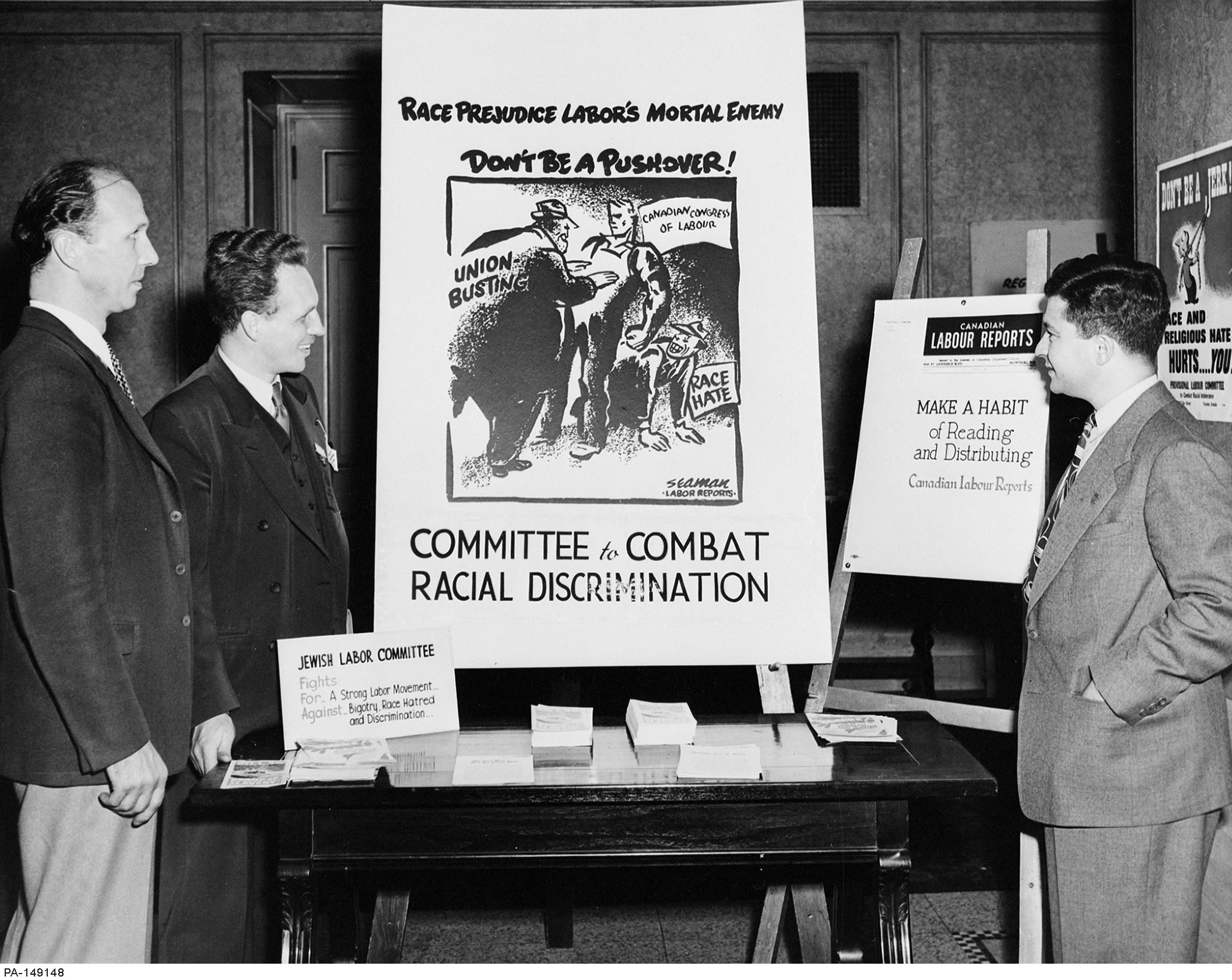Montreal Civil Liberties Union
With the demise of the communist-led Montreal Canadian Civil Liberties Union during the Second World War, an opening existed for the rise of the Montreal Civil Liberties Association (MCLA). This new body was composed primarily of social democrats, including Frank Scott, who were opposed to the deportations of Japanese Canadians and the government’s implementation of a commission to investigate Igor Gouzenko’s spy ring allegations. Still, compared to the Civil Rights Union and the Ottawa Civil Liberties Association, the MCLA was relatively silent in 1946 regarding the espionage commission, contenting itself with publishing an ad in the Montreal Star that condemned PC6444 but not the commission. Scott and other social democrats disliked communism, and their fear of being seen as defending communist spies probably dampened their enthusiasm. The MCLA was also outspoken in its criticism of the Duplessis Padlock Act. Like many civil liberties groups during this period, however, it was short-lived, expiring during the early 1950s.
As Ross Lambertson explains in Repression and Resistance
“These MCLA people were all ‘respectable’ and primarily Anglophone. The chair was the Rev. Angus de M. Cameron, a Unitarian Minister, the vice-chair was Constance Garneau, the wife of a prominent Montréal businessman, and the secretary-treasurer was the Rev. Claude de Mestral, a United Church minister. One of the members was Roger Ouimet, a Liberal lawyer who was the son-in-law of Liberal politician Ernest Lapointe and was later appointed a judge. Another was Burton Keirstead, a McGill political economy professor and well-known CBC commentator on public affairs. There were also several social-democrats: CCF activists Thérèse Casgrain, Frank Scott, the socially-conscious author Gwethalyn Graham, and Jacques Perrault, a professor of law at the University of Montréal, who was a supporter of the Parti Social Démocratique (and later the CCF), as well as a board member of Le Devoir. The organization also boasted the support of civil liberties lawyer Bernard Mergler, as well as Leslie Roberts, a journalist and author who had been executive assistant to Minister of Defense Norman Rogers … The MCLA was also a failure. In 1947 it had taken in membership fees of almost six hundred dollars and had spent double that on newspaper advertising. However, by 1948 the executive of the organization noted that it was less active than in the past, and had difficulty recruiting in the Francophone sector of the city. The organization was still in existence in 1950, but Frank Scott lamented that there was unfortunately very few members. Part of the problem seems to have been the impossibility of long-term cooperation between the left and the right. Scott’s organization was being supplanted by a Civil Rights Union ‘communist front’ organization, the Montréal Civil Rights Union (MCLU), created in 1948 in response to the renewed use of the Padlock Act by Premier Duplessis.”
Further Reading
Lambertson, Ross. Repression and Resistance: Canadian Human Rights Activists, 1930-1960. Toronto: University of Toronto Press, 2005.
Archives
There is no single archival collection for the MCLA. However, material is available in the J. King Gordon Papers, the Arthur Roebuck Papers, and the Frank Scott Papers at Library and Archives Canada.
 Site Resources
Site Resources-
- Any use of material or referencing content from HistoryOfRights.ca should be acknowledged by the User and cited as follows:
–
- Clément, Dominique. “page title or document title.” Canada’s Human Rights History. www.HistoryOfRights.ca (date accessed).


 Encyclopaedia
Encyclopaedia 
 © 2024 COPYRIGHT CLÉMENT CONSULTING. ALL RIGHTS RESERVED.
DEPARTMENT OF SOCIOLOGY, UNIVERSITY OF ALBERTA
© 2024 COPYRIGHT CLÉMENT CONSULTING. ALL RIGHTS RESERVED.
DEPARTMENT OF SOCIOLOGY, UNIVERSITY OF ALBERTA